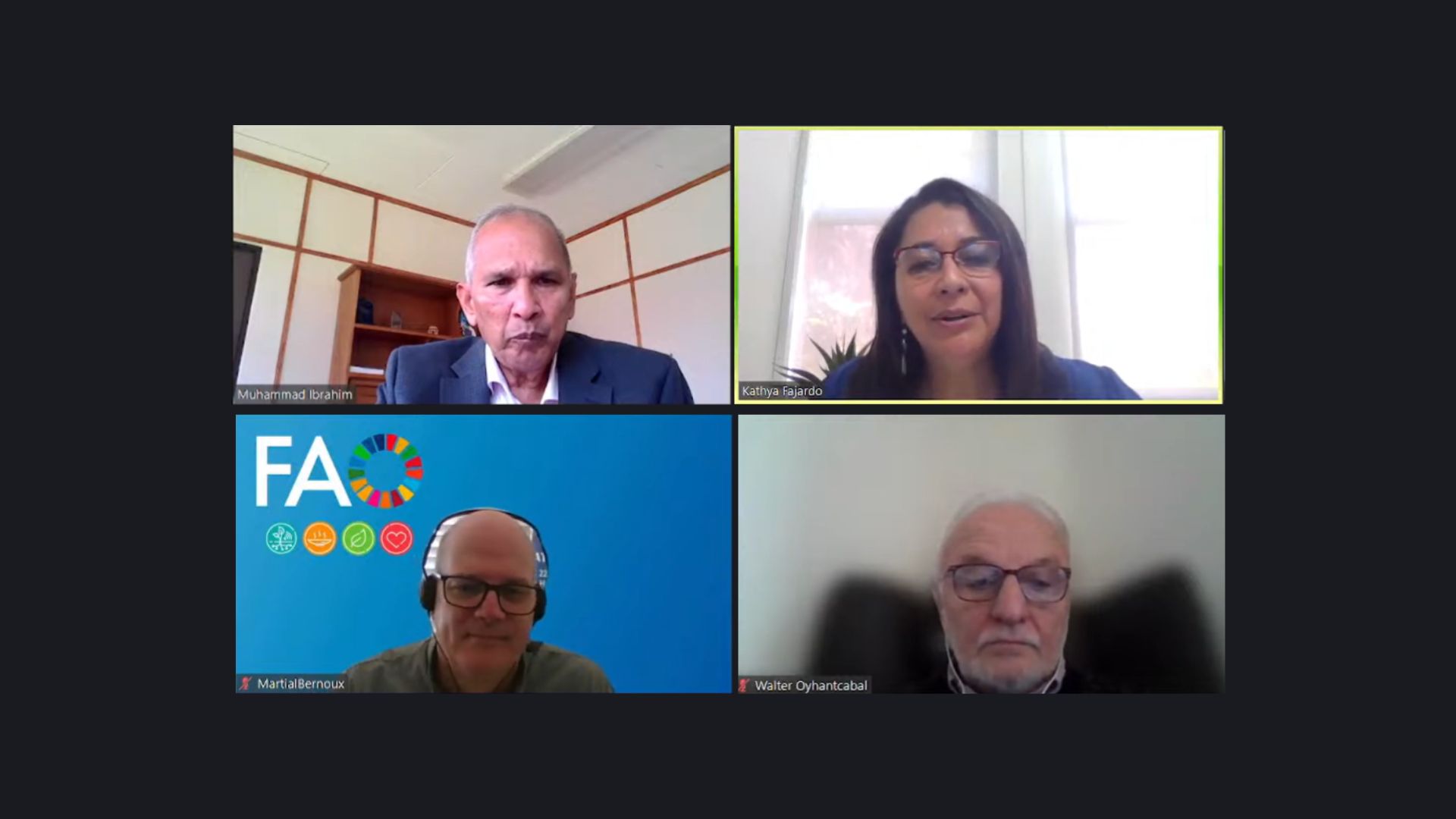In a virtual seminar organized by IICA and the Executive Secretariat of the Central American Agricultural Council, experts discussed the Global Stocktake presented at COP28 in Dubai, a report that shows the status of national climate mitigation and adaptation actions.

San José, May 30, 2024 (IICA). In a virtual event convened by the Inter-American Institute for Cooperation on Agriculture (IICA) and the Executive Secretariat of the Central American Agricultural Council (CAC), experts discussed the progress of global climate action, the gaps that exist, and the challenges that need to be addressed to speed up adaptation and mitigation measures in the agriculture sector.
The webinar Global Stocktake and its Importance for Agriculture, targeted at agricultural negotiators and technical collaborators involved in work related to the United Nations Framework Convention on Climate Change (UNFCCC), was one of the initial steps of the technical support that the Institute will be providing to its Member States in the runup to COP29, or the Conference of the Parties to that Convention, which will be held from November 11 to 22 in Baku, Azerbaijan.
The meeting addressed the so-called Global Stocktake, an assessment presented for the first time at COP28 held at the end of 2023 in Dubai, United Arab Emirates, where IICA, its member countries and private sector partners installed a pavilion entitled “Home of Sustainable Agriculture of the Americas.”
The report, which will be compiled every five years, is a critical assessment that helps countries understand where they stand in terms of the climate commitments established in the Paris Agreement, and what else they need to do to achieve the goals set, especially that of keeping global warning below 1.5°C.
It is intended to provide a transparent, comprehensive assessment of the current state of climate change mitigation and adaptation, and related financial flows.
The participants in the virtual event included Muhammad Ibrahim, Director of Technical Cooperation at IICA; Martial Bernoux, Senior Natural Resources Officer in the Office of Climate Change, Biodiversity and Environment of the UN Food and Agriculture Organization (FAO); Walter Oyhantçabal, Advisor on Climate Change and Livestock Farming at IICA; and Kathya Fajardo, Climate Change Specialist at the Institute.
“The Global Stocktake provides an opportunity to conduct a thoroughgoing analysis of the current situation in order to understand the state of our planet and guide the actions being implemented. Taking stock of the results of climate action is very important to identify the gaps and to work together, reaching agreement on viable, effective actions,” Ibrahim said.
He explained that identifying adaptation and emission reduction actions remains important, “not only so the agriculture sector is better reflected in the Nationally Determined Contributions (NDC) to the Paris Agreement, but also because having the information readily available means we can gain a better understanding of extreme weather events,” such as the droughts and floods that in the regions of the Americas determine the performance and capacity of the agriculture sector.
The webinar showed that by reviewing where the world stands in meeting the goals of the Paris Agreement, the Global Stocktake provides input that is helping policymakers and stakeholders strengthen their policies and climate commitments for the next round of NDCs that must be submitted in 2027, paving the way for swifter action.
The NDCs are the commitments that each country establishes for itself to reduce its greenhouse gas emissions and adapt to the effects of climate change, and it is hoped that these will have increasingly ambitious objectives.
“The most important thing is to speed up action at every level, I believe we’re not moving fast enough, we’re experiencing certain delays in some of the processes and we need to speed things up a little, moving from pilot efforts to large-scale implementation if we want to achieve the goals [of the Paris Agreement],” remarked Bernoux, who was tasked with explaining the Global Stocktake in detail.
“We’re aware of, and are ready to implement, most of the strategies to promote adaptation and the resilience of agrifood systems, but we’re not applying them at scale because there are obstacles such as financing and investment, metrics and tools, and improved policies,” he added.
Oyhantçabal expressed concern about the limited progress being made with financing for climate action in agriculture, so developing countries can be more ambitious and reflect it in their NDCs, in the areas of both adaptation and mitigation.
“I’m concerned that, according to FAO studies, financing for agriculture is losing ground compared to other sectors, it doesn’t seem to be receiving the attention it deserves. Obviously, adaptation and mitigation require the means of implementation, such as technology transfer, capacity building and financing, without which it is very difficult for developing countries to set more ambitious goals for their NDCs in the agriculture sector,” the expert concluded.
More information:
Institutional Communication Division.
comunicacion.institucional@iica.int











